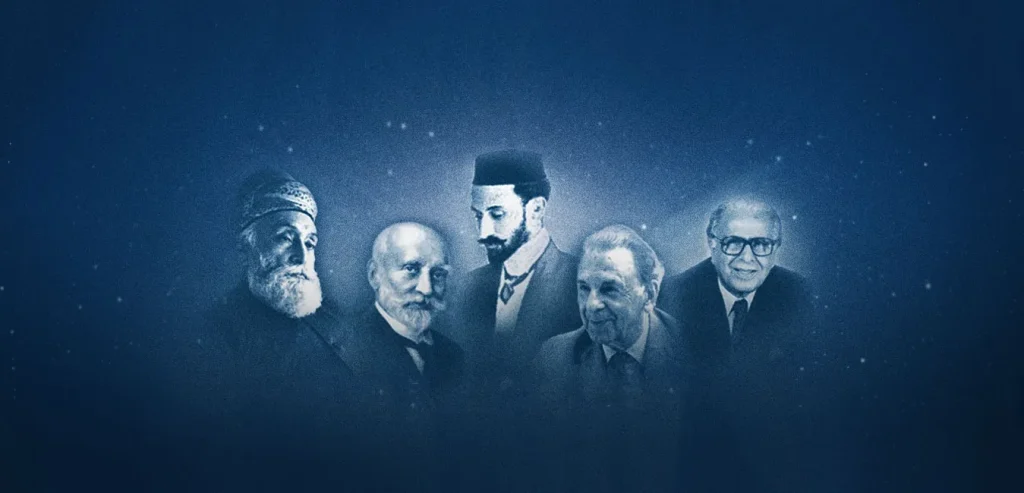The Tata family is synonymous with industrial success in India, yet their rich lineage remains largely unknown to many. At the helm of the Tata Group, a global conglomerate valued in the billions, the Tata family has built a formidable empire that spans industries including steel, automobiles, hospitality, and telecommunications. Founded in 1868 in Mumbai, the Tata Group is a testament to innovation and dedication.
Origins of the Tata Group
The Tata Group’s story begins with its visionary founder, Jamsetji Tata. He laid the foundation for what would become India’s first luxury hotel, the Taj Mahal Palace & Tower. After his passing, his son, Sir Dorab Tata, took charge and expanded the business into various sectors, including steel and electricity. The company’s international presence grew through acquisitions like Tetley Tea and Jaguar Land Rover, alongside the recent acquisition of Air India.
The Family’s Legacy

Originating from Navsari in Gujarat and thriving in Mumbai, the Tata family is primarily represented by Tata Sons, the entity that manages the group’s diverse enterprises. The lineage from Jamsetji to Ratan Tata showcases the enduring legacy and strategic foresight of this distinguished family.
Jamsetji Tata: The Visionary Founder
Jamsetji Tata was more than a businessman; he was a pioneer who prioritised India’s development alongside his ventures. His journey began with textiles before he ventured into steel and hydroelectric power. Despite facing numerous challenges, his commitment to improving the lives of his workers and promoting education left an indelible mark on the nation.
Hirabai Daboo: Support Behind the Visionary
Hirabai Daboo, Jamsetji Tata’s wife, played a crucial role in nurturing the family and supporting her husband’s vision. Their sons, Dorabji and Ratanji Tata, would carry forward the family’s legacy and contribute to the growth of the Tata empire.
Dorabji Tata: Expanding the Empire
Born in 1859, Dorabji Tata significantly contributed to realising his father’s vision. A sports enthusiast and philanthropist, he expanded the Tata Group while also promoting Indian sports. His leadership during challenging times solidified the company’s future.
Meherbai Bhabha: Advocate for Women’s Rights
Meherbai Bhabha, Dorabji Tata’s wife, was an advocate for women’s education and social justice. Her dedication to social issues and sporting achievements marked her as a notable figure in the Tata legacy.
Sir Ratan Tata: A Legacy of Philanthropy
Sir Ratan Tata, born in 1871, continued the philanthropic tradition of the Tata family. He was instrumental in various charitable causes, including disaster relief and education. His legacy includes the establishment of the Sir Ratan Tata Trust, which remains a significant philanthropic institution in India.
Navajbai Sett: A Strong Leader
Married to Sir Ratan Tata, Navajbai Sett took over leadership roles after her husband’s death, focusing on the welfare of underprivileged women and furthering the family’s philanthropic efforts.
Naval Tata: Business and Sports Leadership
Born in 1904, Naval Tata was known for his charitable work and leadership in the Tata Group. His contributions to labour relations and sports administration left a lasting impact on both business and society.
Sooni Commissariat and Simone Dunoyer: Key Family Figures
Sooni Commissariat, Naval Tata’s wife, embraced the Parsi community and nurtured the family ties. Following her, Simone Dunoyer played a pivotal role in popularising Lakmé, contributing to the beauty industry and philanthropy.
Ratan Naval Tata: Transformative Leadership
Ratan Naval Tata, a prominent industrialist, led the Tata Group for over two decades, overseeing significant expansions and philanthropic endeavours. His commitment to various causes, including education and health, underscores the Tata family’s legacy of social responsibility.
The Next Generation: Noel, Neville, Leah, and Maya Tata
Noel Tata, Ratan Tata’s half-brother, oversees significant enterprises within the Tata Group, while his children, Neville, Leah, and Maya Tata, represent the next generation poised to continue the family’s legacy. Their backgrounds in business and philanthropy ensure the Tata ethos remains alive.
The Tata family tree is a remarkable tapestry woven with threads of innovation, philanthropy, and a commitment to societal progress. From Jamsetji Tata to the next generation, the family’s influence on India’s corporate landscape is profound, reflecting a legacy that continues to inspire future generations.
